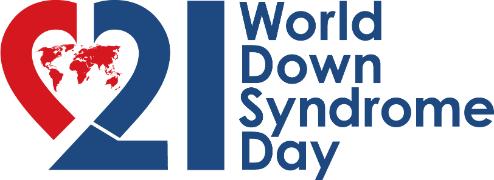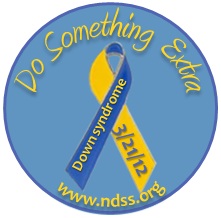Down syndrome is a
naturally occurring chromosomal arrangement that has always been a part of the
human condition, being universally present across racial, gender or
socio-economic lines, and affecting approximately 1 in 800 live births,
although there is considerable variation worldwide. Down syndrome usually
causes varying degrees of intellectual and physical disability and associated
medical issues.
World
Down Syndrome Day (WDSD) was established by Down Syndrome
International in 2006 and has been observed in over 60 countries worldwide to
date. It is held on 21 March (21/3) to signify the uniqueness of the
triplication (trisomy) of chromosome 21 which causes the genetic condition.
The aim of the day is to raise awareness and
understanding about Down syndrome, and to promote the inherent rights of
persons with Down syndrome to enjoy full and dignified lives and be active and
valuable participants in their communities and society.
A resolution to designate 21/3 as “World Down Syndrome Day”, to be
observed every year beginning in 2012, was adopted by consensus by the United
Nations General Assembly in December 2011. The resolution was proposed and
promoted by Brazil, and co-sponsored by 78 UN Member States. From 2012 onwards,
the date will be celebrated by all 192 UN countries. To learn more about the
resolution process at the UN, visit.



